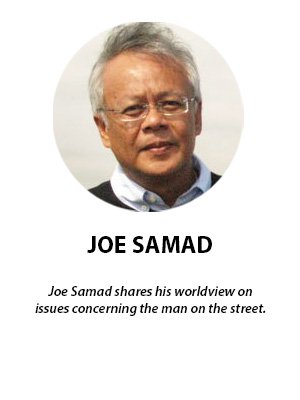A backdoor agreement over oil?

By agreeing to the brokered terms, it now seems Abang Johari has abrogated on the fight for economic equity under MA63.
Joe Samad, Free Malaysia Today
The “amicable” settlement between Sarawak and Petronas over the petroleum sales tax took many by surprise. There has been a hue and cry by political parties and NGOs over the Sarawak government’s capitulation.
Parti Sarawak Bersatu’s Wong Soon Koh criticised the move as tantamount to a sellout.
State assistant law minister denied this, saying it was “completely untrue and misleading”. She did not explain which part was untrue or misleading.
Sarawak and Petronas had reached an agreement on the management of Sarawak’s oil and gas and the sales tax on petroleum products originating in the state. The two parties have agreed that future sales tax will be lower and staggered, based on negotiations.
The dispute over petroleum rights had advanced to the courts and Sarawak won the first round in March. Therefore, the withdrawal of the suit by the Sarawak government has not gone down well with many Sarawakians and Sabahans who see it as capitulating in the ongoing negotiations over the Malaysia Agreement 1963 (MA63) with the federal government, pursued under the Pakatan Harapan (PH) government.
In February, during the overtures by several political parties to form a new government, Sarawak Chief Minister Abang Johari Openg said Gabungan Parti Sarawak would support any national coalition which would agree to pay the 5% sales tax on petroleum products coming out of the state and which guaranteed the state’s rights under MA63.
By agreeing to the brokered terms, it now seems Abang Johari has abrogated on the fight for economic equity under MA63.
With the joint statement, Sarawak’s position has been compromised and it has abandoned its fight to ensure that oil and gas found in its territory belongs to the state.
Sarawak had been very vocal and adamant in this area and had not given an inch to Petronas prior to this announcement.
In March 2018, Abang Johari announced Sarawak was to assume full regulatory authority over the upstream and downstream aspects of the oil and gas industry as part of the devolution of powers from Putrajaya.
He had said Sarawak would exploit its natural resources of oil and gas as provided for constitutionally under the State List in the Ninth Schedule of the Federal Constitution.
The devolution of powers was in keeping with the agreement by former prime minister Najib Razak to return to Sarawak the powers provided for in MA63 that had been eroded over the years, the chief minister had added.
Fast forward, the new agreement with Petronas seems to be in conflict with Abang Johari’s earlier statements.
This is not the first time Sarawak has done an about-turn. After much drum beating, former chief minister Adenan Satem announced in November 2016 that the state government had decided not to pursue tabling a motion on the state’s rights in the state assembly following Najib’s assurance that he was open to discussions “if “ the MA63 and Federal Constitution had been misinterpreted.
As such there was no need for Sarawak to pass a resolution in the assembly demanding the state’s rights under the Federal Constitution, the Inter-Governmental Committee (IGC) report and Malaysia Act.
We are into the second federal government since the 14th general election, and nothing significant has been achieved so far in reclaiming the rights of Sabah and Sarawak.
The MA63 committee, formed during PH’s short reign, is no longer active, and there are no signs that it will be revived anytime soon.
Maximus Ongkili, the minister for Sabah and Sarawak affairs under the Perikatan Nasional government, said one of his main tasks was to solve issues regarding MA63.
Ongkili said the previous government tried to amend Article 1(2) of the Federal Constitution but failed, and his task was to get it done within six months. One political analyst then said if he could not resolve the MA63 issue when he was with the BN government, he was unlikely to achieve anything under the current scenario.
Prime Minister Muhyiddin Yassin said since the effort to review the implementation of MA63 started officially in December 2018, the Sarawak government and Petronas had succeeded in reaching a consensus to opt for a settlement in the negotiations on matters relating to oil and gas and petroleum products’ sales tax in Sarawak.
This resolution, he said, was the right approach in terms of the long-term economic, financial and social interest of the nation.
Many East Malaysians are sceptical of such views which have been expressed by successive prime ministers.
It is now Sabah’s turn to digest the pact between Petronas and Sarawak.
In April, Chief Minister Shafie Apdal announced that the Sabah government had imposed a 5% sales tax requirement on all petroleum oil companies operating in the state.
He said the implementation of the tax was discussed with the federal government under the leadership of Dr Mahathir Mohamad.
Unlike Sarawak, Sabah is not in the loose coalition with the PN government and has no obligations to toe the line.
It remains to be seen whether Shafie will make a firm stand and collect the 5% from all oil companies operating in Sabah waters, including Petronas.
After the big let down on the 20% oil royalties promised by the PH government, Sarawak has left Sabah in an uncomfortable position – to eventually follow Sarawak or to say to Petronas it’s a non-negotiable item.
The capitulation by Sarawak through some backdoor agreement has created a precedent and complicates the East Malaysian claims over autonomy and rights under MA63.
For Sabah and Sarawak are tied to the same umbilical cord, MA63, which gave birth to Malaysia.
Sabah’s options have now been narrowed – stick to the 5% sales tax demand or negotiate with Petronas. If Petronas refuses to pay, the only option is the court.

